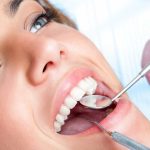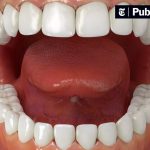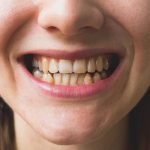Clicking Teeth: What Causes It and How to Fix It
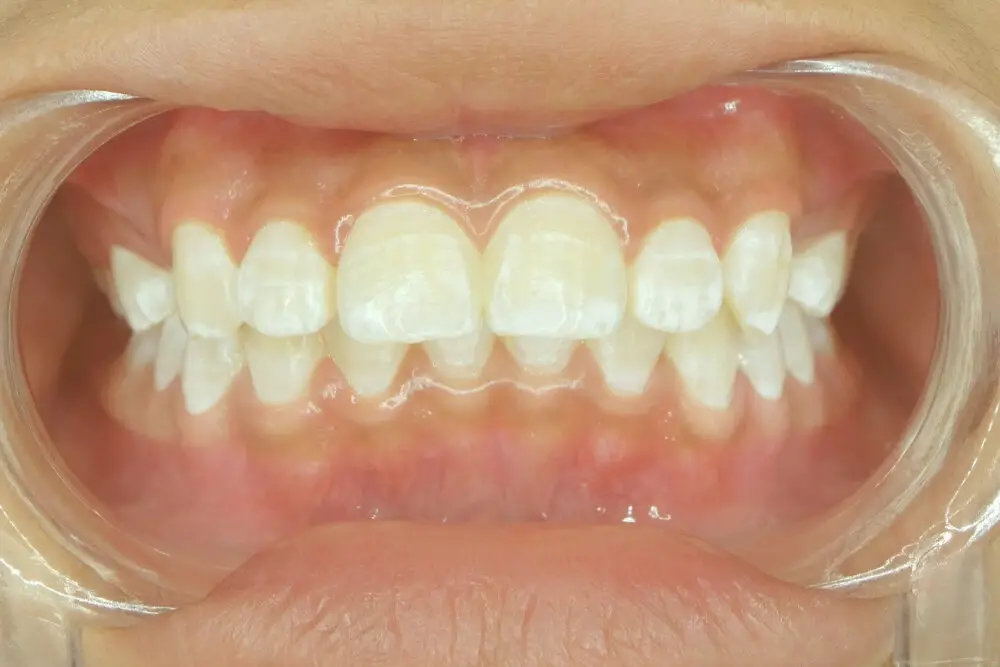
Clicking teeth, also known as tooth clicking, is a common dental problem that affects many people. This condition occurs when the teeth make a clicking or popping sound when the jaw is moved, such as when chewing, talking, or yawning. While it may not always be painful, it can be annoying and can also indicate an underlying dental issue that needs to be addressed. In this article, we will explore the causes of clicking teeth and provide tips on how to fix this problem. There are various factors that can lead to clicking teeth, including misaligned teeth, TMJ (temporomandibular joint) disorders, teeth grinding, and jaw injuries. Misaligned teeth can cause a poor bite, which can result in stress on the jaw joint and lead to clicking. TMJ disorders occur when there is damage or inflammation in the joint that connects the jawbone to the skull, causing pain, stiffness, and clicking in the jaw. Teeth grinding, also known as bruxism, can wear down teeth and cause jaw pain that can result in clicking. Lastly, jaw injuries such as fractures or dislocations can also lead to clicking teeth. If you experience any of these symptoms, it is important to consult a dental professional to determine the cause and best course of treatment.
Clicking teeth is a condition where an individual experiences a clicking or popping sound when they open or close their mouth. This condition is usually caused by a misalignment of the temporomandibular joint (TMJ), which connects the jawbone to the skull. Other factors that can lead to clicking teeth include teeth grinding, stress, and arthritis. If left untreated, clicking teeth can lead to pain, discomfort, and difficulty chewing. Fortunately, there are several ways to fix the condition, including practicing good oral hygiene, using a mouthguard to prevent teeth grinding, and undergoing physical therapy to strengthen the jaw muscles and alleviate pressure on the TMJ. In severe cases, surgery may be necessary to realign the joint and provide long-term relief from clicking teeth.
Addressing the issue of clicking teeth is of utmost importance as it not only affects one’s overall oral health but also impacts their quality of life. Clicking teeth are often indicative of an underlying problem such as bruxism or temporomandibular joint disorder (TMJ). Ignoring these issues can lead to severe pain and discomfort, affecting one’s ability to eat, speak, and even sleep. Additionally, untreated clicking teeth can lead to long-term damage to teeth, gums, and the jawbone. It’s crucial to address the issue timely by seeking the help of a dental professional and following the prescribed treatment plan to prevent any further complications.
Causes of Clicking Teeth
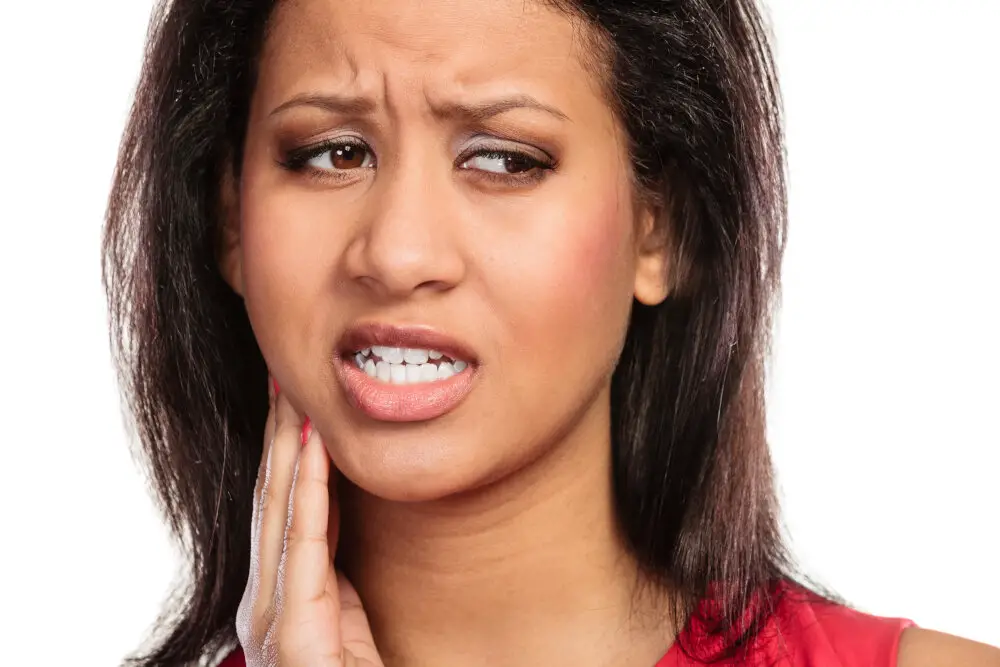
Clicking teeth is a common dental issue that can be caused by a number of factors. One of the most common causes of clicking teeth is bruxism, which is the involuntary grinding or clenching of teeth. This condition can occur during the day or night and can be caused by stress, anxiety, or misaligned teeth. When bruxism is left untreated, it can lead to clicking teeth and other dental problems such as jaw pain, headaches, and worn down teeth. Other causes of clicking teeth include temporomandibular joint (TMJ) disorder, which occurs when there is an issue with the joint that connects the jawbone to the skull. This can cause clicking, popping, or locking of the jaw, as well as pain and discomfort in the jaw and surrounding areas. In addition to bruxism and TMJ disorder, clicking teeth can also be caused by dental problems such as misaligned teeth, missing teeth, or a damaged tooth. When teeth are not properly aligned, it can cause the jaw to shift, resulting in a clicking sound. Missing teeth can also lead to clicking teeth as the remaining teeth may shift and cause misalignment. A damaged tooth, such as a cracked or chipped tooth, can also cause clicking as it may affect the way the jaw moves. The good news is that there are treatments available for clicking teeth, including mouthguards, orthodontic treatment, and dental restorations such as crowns or bridges.
Misaligned teeth, also known as malocclusion, is a dental condition in which the teeth are not properly aligned when the jaws are closed. This can lead to various dental problems such as difficulty in chewing, speech problems, and even jaw pain. Misaligned teeth can be caused by a variety of factors such as genetics, childhood habits like thumb sucking, missing teeth, and improper dental care. The good news is that misaligned teeth can be treated through various methods such as braces, retainers, and other orthodontic procedures. Seeking the advice of a dental professional is the first step in finding the right solution to fix misaligned teeth and improve overall dental health.
Temporomandibular joint disorder or TMJ is a condition that affects the joint connecting the jawbone to the skull. This joint is responsible for the movement of the jaw and allows us to talk, eat, and yawn. TMJ can occur due to many reasons, including teeth grinding, clenching, jaw injury, or arthritis. The most common symptoms of TMJ include jaw pain, clicking or popping sounds while opening or closing the mouth, headaches, earaches, and difficulty in chewing. The good news is that TMJ can be treated with various methods, such as jaw exercises, stress management, medication, and, in severe cases, surgery. It is crucial to consult a dentist or a healthcare provider if you experience any of the symptoms mentioned above to assess and manage the condition effectively.
Teeth grinding, also known as bruxism, is a common condition that affects people of all ages. It is characterized by the involuntary grinding, clenching, or gnashing of teeth. While occasional teeth grinding may not cause any harm, chronic bruxism can lead to serious dental problems such as tooth sensitivity, enamel erosion, and even tooth loss. The causes of teeth grinding are not fully understood, but stress, anxiety, and sleep disorders are known to be contributing factors. In order to prevent or treat teeth grinding, it is recommended to practice stress-reducing techniques, wear a mouthguard at night, and seek dental treatment if necessary.
Dental issues can range from minor discomfort to severe pain, and clicking teeth is one of the common issues faced by many people. This occurs due to the misalignment of the temporomandibular joint (TMJ), which connects the jaw to the skull. The clicking sound is caused by the movement of the jaw and can be accompanied by pain, stiffness, and difficulty in opening and closing the mouth. TMJ disorder can be caused by various factors such as stress, teeth grinding, jaw injury, and arthritis. Treatment options include self-care measures like avoiding hard foods and applying heat or ice packs, medications, and in severe cases, surgery. Seeking timely treatment can help prevent further complications and improve the quality of life.
Symptoms of Clicking Teeth

Clicking teeth is a common problem that can be caused by a variety of factors. Some of the most common symptoms of clicking teeth include pain or discomfort in the jaw, difficulty opening or closing the mouth, and a clicking or popping sound when you chew or speak. Other symptoms may include headaches or earaches, as well as a feeling of tightness or tension in the jaw muscles. If you experience any of these symptoms, it is important to seek the advice of a dental professional as soon as possible. There are several potential causes of clicking teeth, including misaligned teeth or an uneven bite, temporomandibular joint (TMJ) disorder, or bruxism (teeth grinding). In some cases, clicking teeth may be caused by a combination of these factors. Depending on the cause of your clicking teeth, treatment options may include orthodontic treatment to correct misaligned teeth, physical therapy or other treatments to address TMJ disorder, or a custom mouthguard to prevent teeth grinding. In some cases, lifestyle changes such as stress reduction or changes in diet may also be recommended to help alleviate symptoms. With proper diagnosis and treatment, most cases of clicking teeth can be effectively treated and managed.
A clicking or popping noise when opening or closing the mouth is a common symptom of temporomandibular joint (TMJ) disorder, which affects the jaw joint and surrounding muscles. This condition can be caused by various factors, such as stress, injury, arthritis, or teeth grinding. The clicking sound occurs when the disc within the joint shifts out of its normal position, causing the bones to rub against each other. In some cases, the popping noise may be accompanied by pain, stiffness, or difficulty opening the mouth. Fortunately, there are several ways to treat TMJ disorder, including relaxation techniques, physical therapy, medication, or surgery. Consulting a dentist or doctor can help identify the underlying cause of the problem and provide appropriate treatment options.
Pain or discomfort in the jaw is a common issue that can arise due to a range of reasons. In some cases, it can be attributed to the clicking of teeth, which can occur as a result of dental misalignment or temporomandibular joint (TMJ) disorder. This discomfort can be felt in different parts of the jaw, such as the joint, muscles, or bones. Patients may also experience difficulty in chewing, speaking, or opening their mouth. The clicking of teeth can be a frustrating and distracting problem, but there are various treatment options available. Patients may be advised to use a mouthguard or undertake physical therapy exercises to alleviate the symptoms. In some cases, dental procedures or surgery may be necessary to correct the underlying cause of the issue.
Difficulty chewing or biting is a common symptom experienced by many individuals suffering from clicking teeth. This condition can make it challenging to consume certain foods and can cause discomfort and pain while eating. The clicking or popping sound occurs when the jaw joint moves, and the disc inside the joint is displaced. This can be caused by a variety of factors, including teeth grinding, misaligned teeth, or injury to the jaw. In severe cases, clicking teeth can lead to temporomandibular joint disorders (TMD), which can cause chronic pain and require medical treatment. It is crucial to seek professional help from a dentist or doctor if you are experiencing difficulty chewing or biting or any other symptoms related to clicking teeth.
Headaches and earaches are often associated with clicking teeth, as the temporomandibular joint (TMJ) plays a crucial role in both conditions. TMJ dysfunction can lead to headaches due to the strain on the muscles in the face, neck, and shoulders. Additionally, the inflammation in the joint can cause pain that radiates into the ear, leading to earaches. Clicking teeth can be a result of misaligned teeth, clenching or grinding of teeth, or stress, which can all contribute to TMJ dysfunction. To fix clicking teeth, it is important to address the underlying cause of the issue, such as orthodontic treatment, relaxation techniques, or wearing a mouthguard to prevent teeth grinding.
Treatment Options for Clicking Teeth
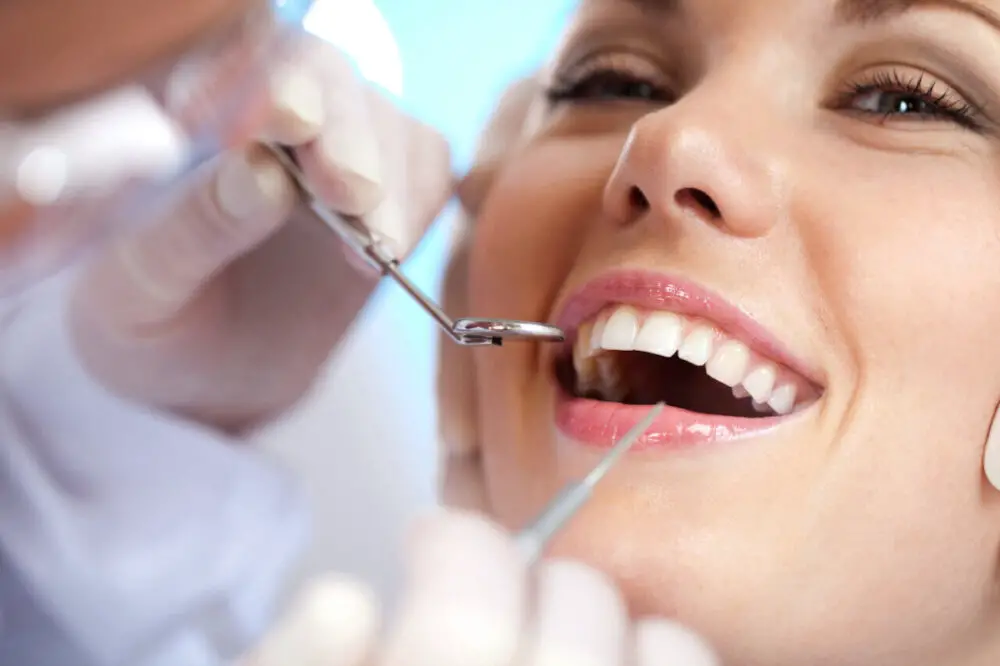
Clicking teeth can be a frustrating and uncomfortable experience for many people. Luckily, there are several treatment options available that can help alleviate the symptoms and prevent further damage to the teeth and jaw. One of the most common treatments for clicking teeth is the use of a splint or mouthguard. These devices are designed to help align the teeth and prevent grinding or clenching, which can cause clicking and other symptoms. A dentist or orthodontist can custom-fit a splint or mouthguard to ensure that it is comfortable and effective for each individual patient. In more severe cases of clicking teeth, surgery may be necessary. This can involve repairing or replacing damaged or worn-down teeth, or realigning the jaw through orthognathic surgery. While surgery is typically reserved for more extreme cases, it can be a highly effective treatment option for those who suffer from chronic clicking or other symptoms. Ultimately, the best treatment plan for clicking teeth will depend on the individual patient’s symptoms and the underlying cause of their condition. A qualified dental professional can help diagnose the issue and develop a personalized treatment plan that addresses each patient’s unique needs and concerns.
Mouthguard or splint therapy is a common treatment option for those suffering from clicking teeth. This therapy involves the use of a custom-made mouthguard or splint that is worn while sleeping. The mouthguard or splint helps to keep the teeth and jaws in proper alignment, reducing the amount of pressure placed on the temporomandibular joint (TMJ). This, in turn, can help to reduce clicking and popping sounds when opening and closing the jaw. Mouthguard or splint therapy is often recommended as a first-line treatment for clicking teeth, as it is non-invasive and can be highly effective in reducing symptoms. However, it is important to consult with a dentist or dental professional to determine the best course of treatment for your specific needs.
Orthodontic treatment is an effective solution for misaligned teeth that can lead to clicking sounds. It involves the use of braces or aligners to gradually shift teeth into a more optimal position. The treatment duration can vary depending on the severity of the misalignment, but generally lasts between 1-3 years. Invisalign is a popular alternative to traditional braces, as it uses clear aligners that are virtually invisible. Additionally, orthodontic treatment not only improves the appearance of teeth, but can also improve speech, reduce the risk of tooth decay and gum disease, and alleviate jaw pain. Overall, orthodontic treatment is a worthwhile investment for those seeking to improve their oral health and eliminate clicking sounds caused by misaligned teeth.
Medications for pain relief and muscle relaxation can be useful in managing clicking teeth. Nonsteroidal anti-inflammatory drugs (NSAIDs) such as ibuprofen or naproxen can help reduce pain and inflammation in the jaw joint. Muscle relaxants such as cyclobenzaprine or diazepam can help relax the muscles around the jaw and alleviate tension. In some cases, a low dose of antidepressants such as amitriptyline or nortriptyline may be prescribed to help with chronic pain. However, it is important to note that medication alone may not be enough to fully treat clicking teeth and a comprehensive treatment plan should be discussed with a healthcare professional.
In severe cases of clicking teeth, surgery may be necessary to correct the issue. This is typically reserved for cases in which other treatments have failed or if the clicking is caused by a structural issue. The surgery may involve repositioning the jaw or adjusting the position of the temporomandibular joint. While surgery can be effective in correcting clicking teeth, it is typically considered a last resort due to the risks involved. Patients may experience pain, swelling, and difficulty eating following the surgery, and there is always a risk of complications such as infection or nerve damage. As with any medical procedure, it is important to discuss the risks and benefits of surgery with your doctor to determine if it is the right option for you.
Preventative Measures
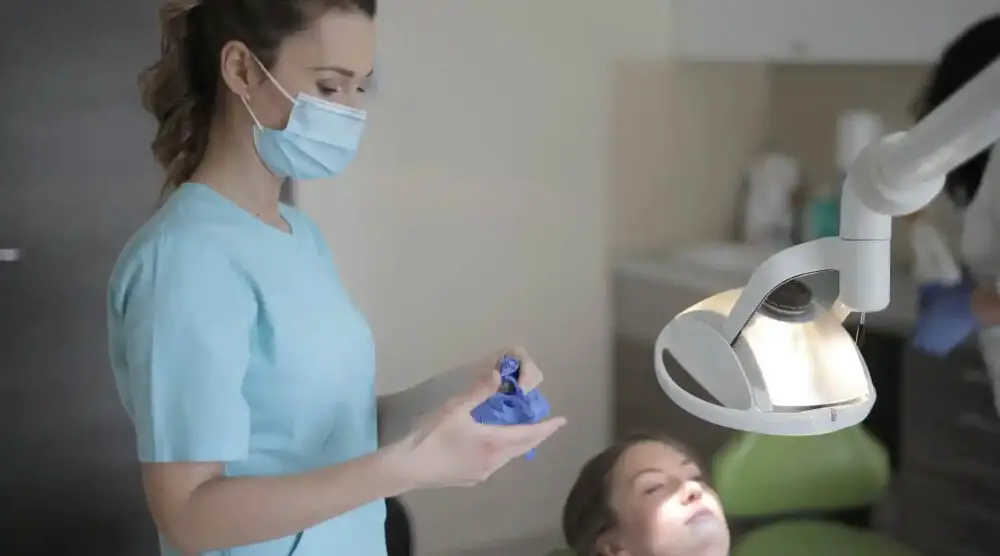
Clicking teeth can be a frustrating and uncomfortable experience, but fortunately, there are several preventative measures that can help reduce the likelihood of it happening. Firstly, maintaining good oral hygiene is crucial to prevent dental issues such as overcrowding, misalignment, and gum disease. Brushing and flossing daily, as well as seeing a dentist regularly for check-ups and cleanings, can help keep teeth healthy and strong. Additionally, wearing a mouthguard during sports or physical activities can help protect teeth from impact and reduce the risk of damage. Another preventative measure is to be mindful of habits that may contribute to teeth clicking, such as grinding or clenching. Stress management techniques like meditation or therapy can help reduce stress and alleviate tension in the jaw, which can help prevent teeth clicking caused by grinding or clenching. Additionally, avoiding hard or chewy foods that require excessive jaw movement can also help prevent teeth clicking. By implementing these preventative measures, individuals can take proactive steps to reduce their risk of experiencing teeth clicking and maintain good overall oral health.
Maintaining good oral hygiene is crucial in preventing clicking teeth. Brushing your teeth twice a day and flossing at least once a day can help remove any food particles and plaque that may have accumulated in between your teeth and gums. Additionally, using an antiseptic mouthwash can help kill any bacteria that may cause gum disease. Avoiding sugary and acidic foods as well as tobacco products can also help reduce the risk of dental problems that can lead to clicking teeth. Finally, visiting your dentist regularly for check-ups and cleanings can help catch any dental issues early on and prevent them from becoming more serious. By following these simple steps, you can maintain good oral health and prevent clicking teeth.
When it comes to clicking teeth, one of the easiest things you can do to help prevent or alleviate the issue is to avoid hard and chewy foods. These types of foods can put extra strain on your jaw muscles and joints, which can exacerbate clicking or popping in the jaw. Instead, opt for softer, easier-to-chew foods like cooked vegetables, tender meats, and fruit smoothies. If you do need to eat something crunchy, try breaking it into smaller pieces or taking smaller bites to reduce the pressure on your jaw. By making simple changes to your diet, you can help improve the health of your jaw and reduce the likelihood of clicking teeth.
Managing stress levels is crucial in preventing clicking teeth. Stress can lead to teeth grinding or clenching, which can wear down the teeth and cause them to click. To manage stress, it is recommended to practice relaxation techniques such as yoga or meditation. Engaging in physical activity, getting enough sleep, and limiting caffeine and alcohol intake can also help reduce stress levels. Additionally, seeking professional help from a therapist or counselor can provide effective coping strategies for managing stress and preventing the habit of teeth grinding. By managing stress levels, one can avoid the discomfort and potential damage caused by clicking teeth.
Teeth grinding, also known as bruxism, can lead to several dental problems such as worn-down teeth, jaw pain, and headaches. Seeking treatment for teeth grinding is essential to prevent further damage and improve overall dental health. A dental professional can provide a custom-fitted mouthguard to protect teeth during sleep and alleviate symptoms of bruxism. Additionally, practicing stress-reducing techniques, such as exercise and meditation, can also help alleviate teeth grinding. It is important to address teeth grinding early on to avoid more severe dental issues in the future.
Clicking teeth is a common condition that can be caused by a variety of factors. It may be due to teeth grinding or clenching, a misaligned bite, or even stress and anxiety. Symptoms of clicking teeth can include a clicking or popping sound when opening and closing the mouth, pain or discomfort in the jaw, and difficulty chewing. Treatment options for clicking teeth vary depending on the underlying cause. Some options include wearing a mouthguard to prevent teeth grinding, orthodontic treatment to correct a misaligned bite, or stress management techniques to reduce anxiety. In severe cases, surgery may be necessary to alleviate the symptoms. It is important to consult with a dental professional to determine the best course of treatment for your specific situation.
If you are experiencing clicking teeth, it is important to seek professional help from a dentist. Clicking teeth can be a sign of a more serious underlying condition, such as temporomandibular joint disorder, or TMJ. Seeking professional help can help you identify the root cause of your clicking teeth and receive the appropriate treatment to prevent further damage. Ignoring this condition can lead to more severe pain, discomfort, and difficulty eating. Don’t hesitate to seek the help of a dental professional to address the issue and prevent it from progressing.
Maintaining good oral health is crucial in preventing clicking teeth and other dental problems. It is essential to brush your teeth twice a day, floss daily, and use mouthwash regularly. These simple preventative measures help remove plaque and food particles that can cause tooth decay and gum disease. Regular dental check-ups can also help detect any underlying dental issues and prevent them from worsening. Additionally, avoiding sugary and acidic foods and drinks can help maintain healthy teeth and prevent enamel erosion, which can lead to clicking teeth and other dental problems. Taking preventative measures to maintain good oral health not only prevents dental issues but also promotes overall health and well-being.
Conclusion
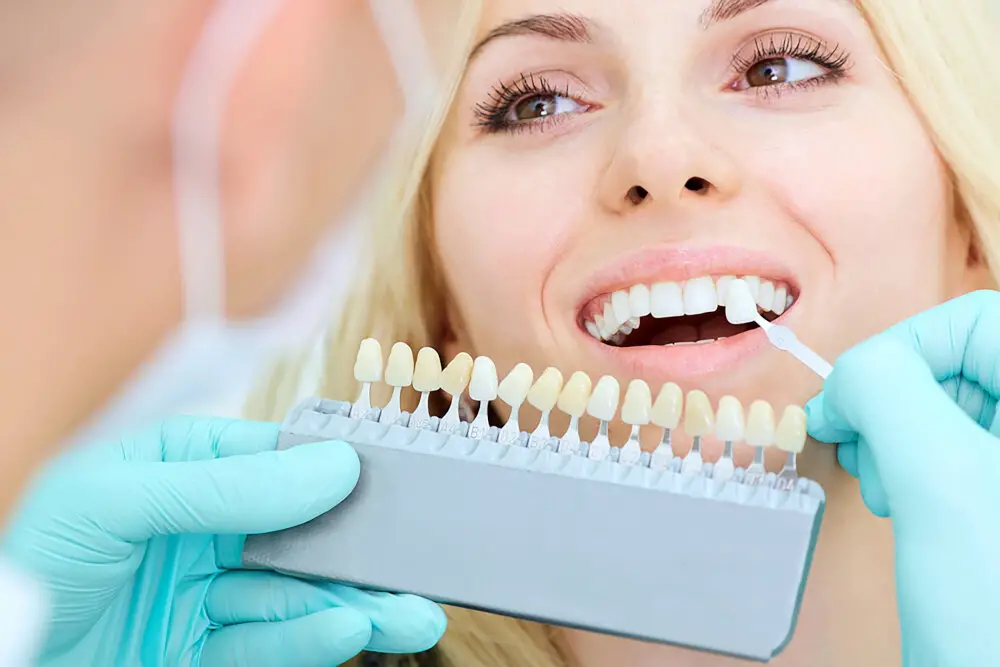
In conclusion, clicking teeth can be a frustrating and uncomfortable experience, but it is usually not a serious dental issue. The most common causes of clicking teeth are temporomandibular joint disorder (TMD), teeth grinding, and misaligned teeth. Treatment options for clicking teeth include lifestyle changes such as stress reduction techniques, jaw exercises, and the use of mouthguards or splints. In severe cases, surgery may be necessary. It is important to consult with a dentist or dental professional if you experience clicking teeth to determine the underlying cause and to receive the appropriate treatment. By addressing the root cause of the problem, you can alleviate discomfort and prevent long-term dental damage.
